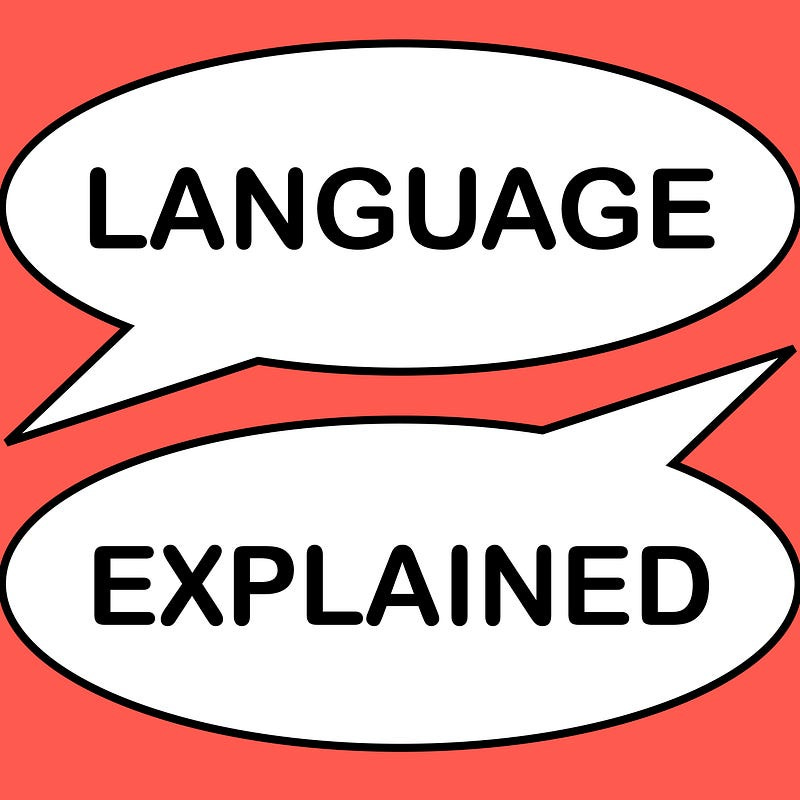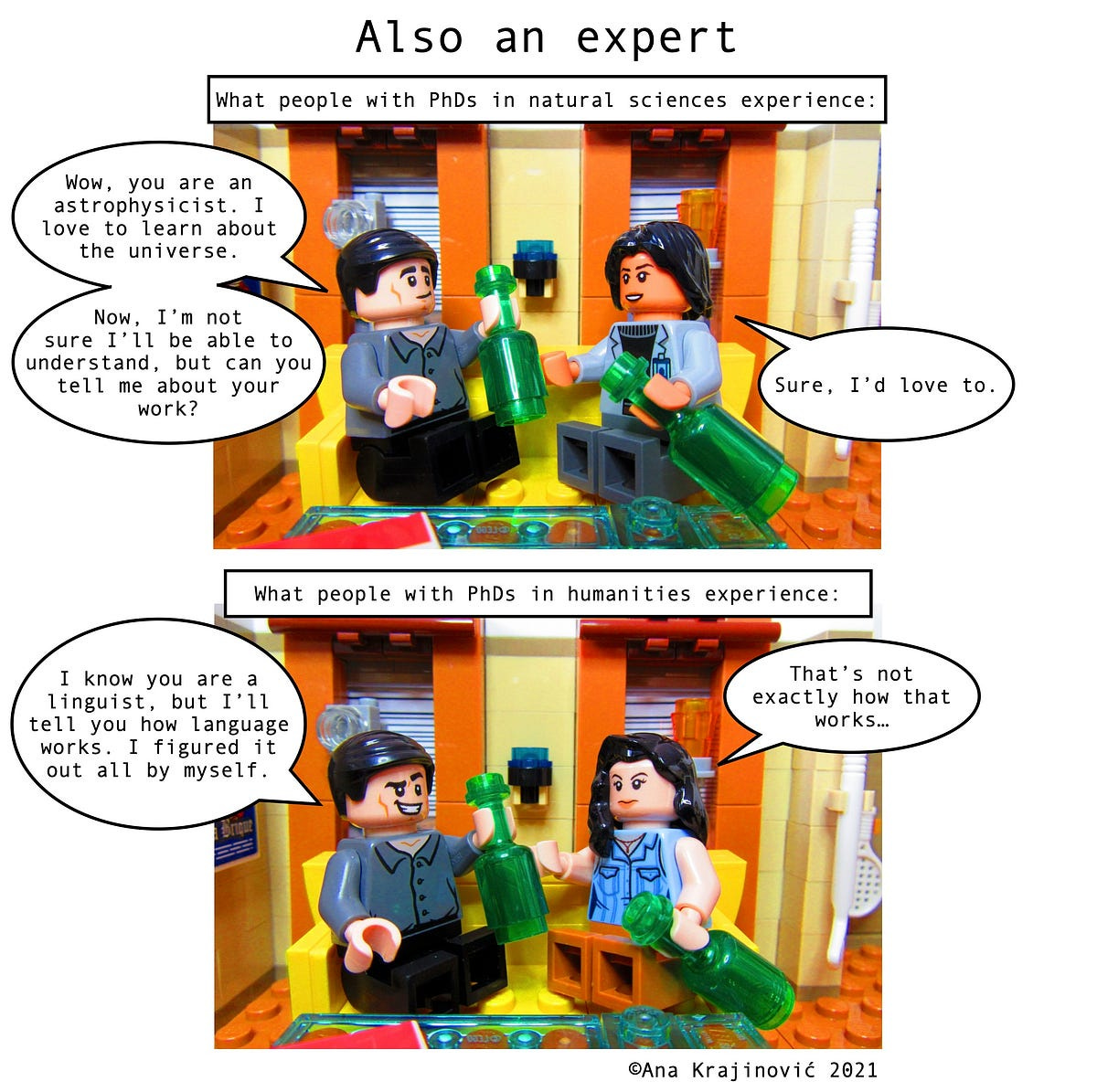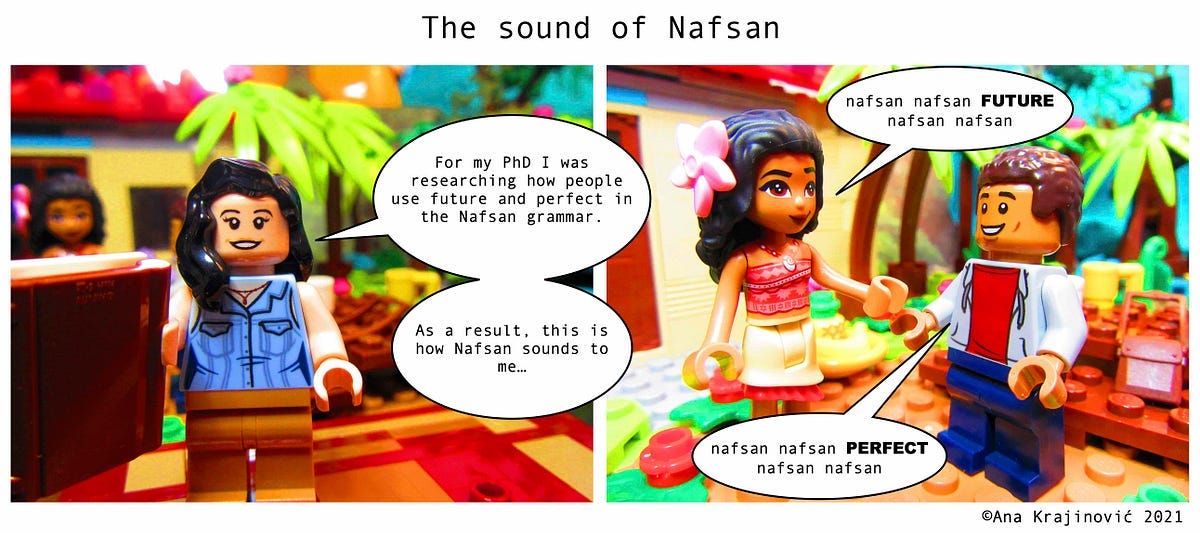Setting the stage for our new publication about languages and linguistics!
Hi Ana, nice to meet you. What is it that you do?
Hi, nice to meet you too. I am a linguist.
Oh <confused or blank face>.
I study languages and their grammars.
Interesting, so you tell people how to speak correct English for example?
No.
Oh, so then you learn many foreign languages, like Italian and Spanish?
Not really, I actually work on a small language with only a few thousand speakers.
Wait, what? Why the hell would you do that?
This type of dialog sounds all too familiar to many linguists out there. Unfortunately, the worst part about the myths included in this dialog is not that they are damaging to linguists’ self-esteem. They influence how we treat other people, their languages and cultures, and the type of knowledge we teach to our children, both at home and in school.
So, hear me out. Understanding how language works will make you understand so much more about humans in general. Language is not some fringe interest you should not be thinking about because you had that bad grade in the English class. You speak it every day. Don’t you want to know how you do it? If you think you already do, read this:
Now, let’s go back to the dialog. Maybe this is what I should have said as an answer to “Interesting, so you tell people how to speak correct English for example?”
No, we study the grammar that is a natural part of language, we don’t invent grammatical rules, we discover them, just like botanists discover plants in nature. That is why many of us choose to work with languages that haven’t been studied all that much — to discover what kinds of languages are possible!
And since many languages will go extinct in the next 100 years, we create long-lasting records of language data, so that linguists in the future will also know what kinds of languages existed in our time.
If you want to read more about debunking myths about linguistics, check out my article “I Am a Linguist and No, I Don’t Obsess Over “Correct” Grammar”. This publication on the other hand will focus on the linguistic content and let the wonders of language speak for themselves.
We will regularly publish articles on diverse topics in linguistics, written for a general audience, with one aim in mind: to celebrate the diversity and the slick beauty of language systems all around the globe!
We will not bore you to death by explaining linguistic terminology in excruciating detail. We will focus on what’s interesting about linguistics in an easy-to-understand language.
Keep in mind that we are scientists and we are always on the lookout for general principles with maximum explanatory power. Instead of lengthy descriptions of individual languages, expect more general pieces that target discovering the very basic rules by which language is used, processed, and influenced. We will ask questions like:
How do languages differ from each other and why?
Does grammar make languages easier or harder to learn (or both?)?
Why and how does language change over time?
What can language tell us about deep human history?
What happens when languages come in contact?
What can you learn if you do linguistic fieldwork?
and many many others
Since this is a language-oriented publication after all, we will publish pieces in diverse languages. All the content will be open source. For now, the content will be available only in the written format here on Medium, but in the future we will consider other types of media as well.
I also welcome contributions from other linguists, whether they are students, scholars or other professionals. Get in touch by leaving a comment here or on my other social media if you want to contribute!
And don’t forget to subscribe to our Language Explained Newsletter.
About the editor: Ana Krajinović
I am a postdoctoral researcher at the Heinrich Heine University of Düsseldorf. In 2020 I completed my PhD in linguistics at Humboldt University of Berlin and the University of Melbourne. I work on fieldwork-based semantics of Nafsan, an Oceanic language spoken in Vanuatu. During the pandemic, I started creating short comic strips about linguistics and fieldwork. My website: https://anakrajinovic.com.






